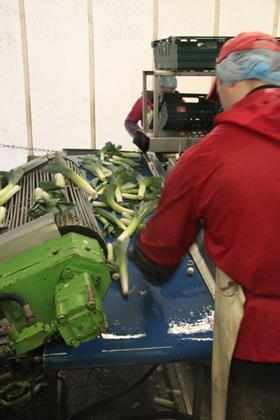
Labour recruiters Pro-Force and Concordia have been chosen by the government to operate its pilot Seasonal Agriculture Workers Scheme (SAWS).
The Home Secretary Sajid Javid announced a pilot SAWS scheme in September, revealing plans to permit 2,500 non-EU workers seasonal entry into the UK to help combat labour shortages across horticulture.
Growers have struggled to recruit enough workers to pick fruit and veg from the field in recent years, with the weakening pound and Brexit making matters worse.
The National Farmers Union has calculated that between 70,000 and 80,000 seasonal workers are needed each year to harvest British crops, but 13 per cent went unfilled last year.
Chief executive of Pro-Force, Matt Jarrett, said its selection as one of two operators running the two-year pilot is testament to its efforts within the recruitment industry to work on improvements that protect workers from the dangers of modern day slavery and other labour abuses.
“Rising incomes within the EU, unfavourable exchange rates and recent uncertainty over the future have combined to make the UK a far less attractive destination for unskilled workers,” he said.
“This has had a direct impact on our fresh produce growers, impairing their ability pick produce and remain competitive in the international market.
“This pilot is aimed at addressing such shortfalls, attracting and managing workers from outside of the EU during the period before Brexit, while labour is still available from Europe.”
NFU chief Minette Batters hailed the government’s pilot scheme as a “major victory” for the industry following two years of lobbying efforts, but others warned that it will have “little effect”, with greater numbers needed.
Mr Jarrett added: “Whilst the pilot only allows a limited number of visas - 2,500 in total - it will reach across England, Wales, Northern Ireland and Scotland.
“The ultimate aim of the scheme is to provide Government with the representative data and foundations for making informed decisions on how to potentially design a larger scheme beyond the two-year pilot.”



